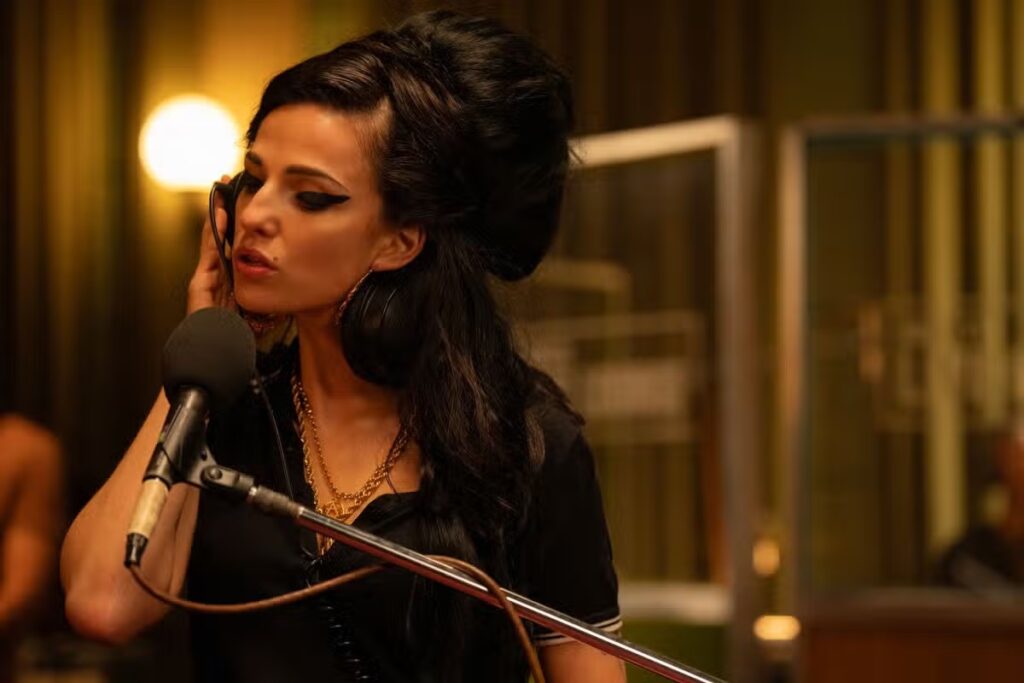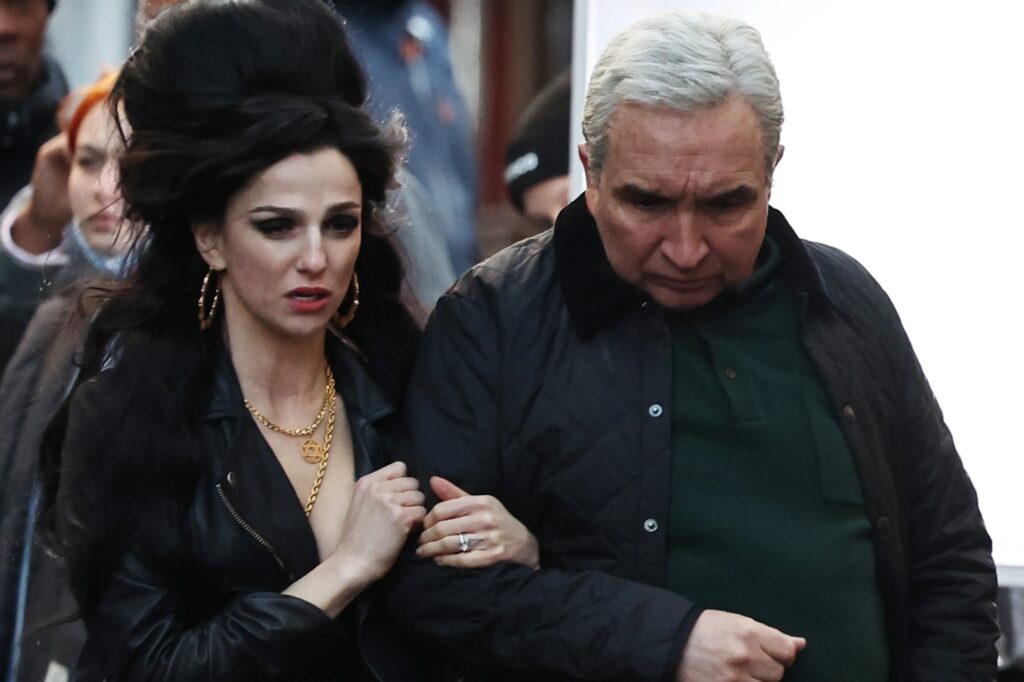Back to Black, the new biopic from director Sam Taylor-Johnson, promises us a glimpse into the life of the iconic Amy Winehouse, celebrated for her unparalleled talent and whose life was sadly plagued by the perils of fame.
The film certainly boasts some stellar performances. Rising star Marisa Abela, in her portrayal of Amy Winehouse (an undeniably tough gig), oscillates between moments of sheer brilliance when she so perfectly captures Winehouse’s distinctive look and charisma, and questionable authenticity where her London accent becomes over-done and caricatural.
Narratively, the film unfortunately falls short. Framed around Winehouse’s lyrics, the film ostensibly aims for a more impressionist, abstract exploration of her life. This would be fine (there’s enough biopics with the traditional ‘rise to stardom’ montages out there), but having eschewed these traditional biopic tropes and a more linear timeline of events, Back to Black struggles to provide an alternative cohesive understanding of Winehouse’s meteoric rise to fame and subsequent struggles.

The animal symbolism is either too screamingly obvious (caged bird) or not obvious enough (fox?) and the absence of pivotal moments in her career, such as the release of her breakthrough single “Rehab”, not seen until the last 20 minutes, as well as many other hits leaves the audience with an incomplete portrait of the artist.
Nor, apparently, is the film aiming for a grittier, no-holds-barred approach to Winehouse’s story. While it does to some extent examine Winehouse’s somewhat troubled psyche and struggles with addiction, even in this it seems overly cautious and reluctant to truly confront the harsh realities of addiction and celebrity, and to say something more profound.
Initially, one gets the sense the film might be building up to a good villain arc. Abela arguably never shines brighter in the film than in scenes depicting Winehouse’s early romance with Blake Fielder-Civil (Jack O’Connell), her innocent openness and youthfulness whilst with him and the raw intensity of their connection so in contrast with her outwardly projected image and soulful voice. However, the film shies away from portraying anyone except the paparazzi in a negative light – Winehouse’s father Mitch (played by Eddie Marsan), widely regarded to have played a part in her tragic end, gets off lightly.

While Blake’s closing speech suggesting the pair were simply bad influences on each other and he should be absolved of some of the vitriolic blame for Winehouse’s actions, makes an interesting and perhaps more historically accurate point, the decision to – albeit realistically – not portray anyone as the “villain” of the story probably diminishes its entertainment value, reducing it to more of a dysfunctional-addict love story.
Despite its shortcomings, Back to Black offers moments of poignancy and reflection, paying homage to Winehouse’s undeniable talent and legacy. While its reluctance to delve deeper into the darker aspects of her life may leave some viewers wishing for a more honest and raw portrayal, in the end, Back to Black serves as a testament to the complexities of life and the enduring allure of Amy Winehouse’s music.
While it may not fully satisfy those seeking a definitive account of her life, it sparks conversation and introspection, inviting audiences to revisit the tumultuous journey of a once-in-a-generation talent.
Back to Black is in cinemas now.
